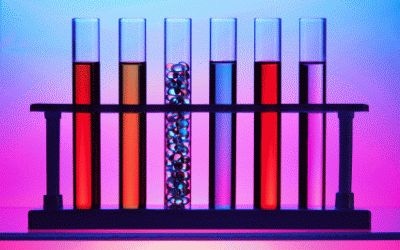
The dietary supplement industry has become an increasingly regulated industry since the 2007 introduction of cGMPs (current good manufacturing practices) for dietary supplements. This has forced many companies to dramatically increase their testing programs as well as their scientific understanding of the development of their products. One requirement that continues to elicit questions and be a source of ambiguity is the term scientifically valid." In fact, the exact requirement in FDA 21CFR Part 111, which is specific to manufacturing, packaging, labeling or holding operations for dietary supplement, states, You must ensure that the tests and examinations that you use to determine whether the specifications are met are appropriate, scientifically valid methods."
When new guidance or new terminology is introduced to industry, uncertainty often follows. It is also challenging for companies to achieve compliance when uncertainty and lack of specific direction leads to inconsistencies in how companies implement the same requirement.
The lack of definition for the term scientifically valid" has been of major discussion among dietary supplement companies, trade organizations, regulators, laboratories and industry insiders. One thing is certain, in addition to the FDA's focus on the manufacturing practices of dietary supplement companies, the agency is also emphasizing the analytical approach used to support the quality of manufactured products, from raw materials to finished products. Currently, a higher percentage of audit findings are related to laboratory operations compared to this time last year. Many of these findings indicated a deficiency in the testing, lack of sufficient and scientifically valid methods, improper identity tests, and lack of test data to support the quality of their products. Companies are being called out on these deficiencies and are looking for more analytical support.
Recently, an FDA warning letter was issued to a company because an inspector pulled a product for testing of a biotin supplement, which subsequently showed the level of biotin to be approximately 5 percent what was claimed on the label. This illustrates FDAs movement toward auditing companies and, as part of that process, testing products for compliance to label claims and nutrient content. Manufacturers must be more prepared than ever to test raw materials and finished products to ensure specifications are met and that the stated amount of each dietary ingredient is present at the level declared.
FDA places the burden of proof on the manufacturer, whether or not it tests its products in-house or with a third-party laboratory. All manufacturers should be prudent in placing their trust in the laboratory they select to be their partner. It is recommended that manufacturers require verification of their laboratorys performance. With recent stories about falsification of test results (known as dry-labbing") by contract laboratories and numerous FDA warning letters emphasizing deficiencies in establishing proper test methods, it has become apparent that further due diligence is necessary by the manufacturer. Auditing the testing partner(s) and having proper documentation of the scientific validity of the methodologies being employed are necessary steps to compliance.
It is important to establish a level of confidence that the methods being used are applied correctly to the product being tested and that you have documentation to support that," said Darryl Sullivan, former president of the AOAC International. There are some reputable scientific organizations that have well-established method validation protocols, such as AOAC and USP [U.S. Pharmacopoeia]."
The concept of scientifically valid" correlates well with the criteria established for full validation protocols, but on a condensed scale. Precision, accuracy and specificity are at the core of what makes a method scientifically valid. It is likely that these criteria would meet the FDA requirement for scientifically valid. Essentially, the method should measure the compound it is intended to measure without interferences, be able to detect all, or nearly all, of the compound without excessive variability in the measurement.
In recent years, product formulations have become more complex, ingredients have become more exotic and manufacturing methods have made them more stable, thus making testing of these components increasingly difficult, especially in finished products. This creates ambiguity in the testing environment since many of these ingredients may not have well established or industry-recognized methods. Oftentimes, methods are pitted against one another when results are contradictory, and it is important to know the scientific validity of the method being used.
Laboratories must have the scientific breadth to be able to understand these challenges and to develop and adapt methods that have the ability to perform accurately. If you dont understand the basic method parameters and how the method performs, it is difficult to stand by the data," Sullivan said.
During the last few years, industry has learned from companies who have been inspected and, unfortunately, have had their challenges with this topic documented publicly in the form of warning letters. It may also, at times, appear the industry is being regulated to pharmaceutical standards. However, manufacturers that have the right people on their team and engage high-quality, qualified laboratories will be the ones that navigate the regulatory environment successfully.
Jeff Stassi, senior client manager at Covance Laboratories, has 27 years experience in testing and consultation for the dietary supplement and food industries.
About the Author(s)
You May Also Like




.png?width=800&auto=webp&quality=80&disable=upscale)